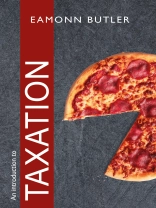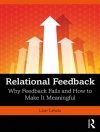Taxes. Why do we pay them? What benefits do they bring? What damage do they cause? And how could they work better? Here, author Eamonn Butler provides a jargon-free guide to taxation, its history, its aims and purposes, and its impact on individuals and economies. He invokes the work of pioneering economist Adam Smith, who defined the basic principles of good tax policy – fairness, certainty, convenience and efficiency. And he observes that taxation regularly falls short of these aims – they’re skewed for political ends and often weigh heavily on the least well-off. They’re overly-complex, costly to comply with and, in some cases, create more harm than good. In concise and coherent fashion, he critiques the knee-jerk thinking behind the introduction of new and higher taxes. He puts forward different ways of funding public services, whilst exploring the principles that would make for a much better – and much simpler – tax system.
Об авторе
Eamonn Butler is Director of the Adam Smith Institute, one of the world’s leading policy think tanks. He holds degrees in economics and psychology, a Ph D in philosophy and an honorary DLitt. In the 1970s he worked in Washington for the US House of Representatives, and taught philosophy at Hillsdale College, Michigan, before returning to the UK to co-found the Adam Smith Institute. He has won the Freedom Medal of Freedoms Foundation at Valley Forge, the UK National Free Enterprise Award and the Hayek Institute Lifetime Achievement Award; his film Secrets of the Magna Carta won an award at the Anthem Film Festival; and his book Foundations of a Free Society won the Fisher Prize. Eamonn’s other books include introductions to the pioneering economists Adam Smith, Milton Friedman, F. A. Hayek and Ludwig von Mises. He has also published primers on classical liberalism, public choice, capitalism, democracy, trade, economic inequality, the Austrian School of Economics and great liberal thinkers, as well as The Condensed Wealth of Nations and The Best Book on the Market. He is co-author of Forty Centuries of Wage and Price Controls, and of a series of books on IQ. He is a frequent contributor to print, broadcast and online media.












